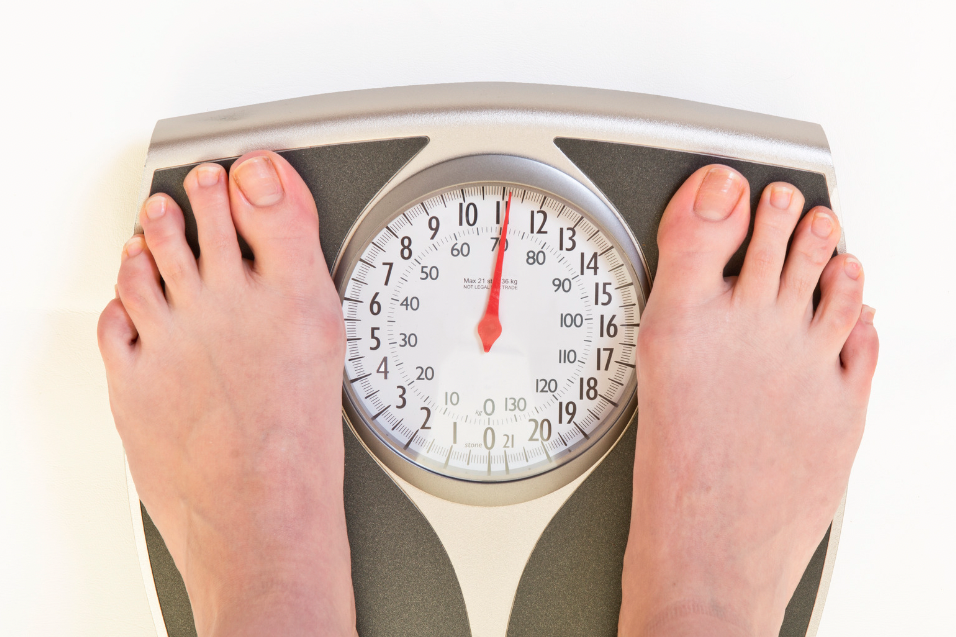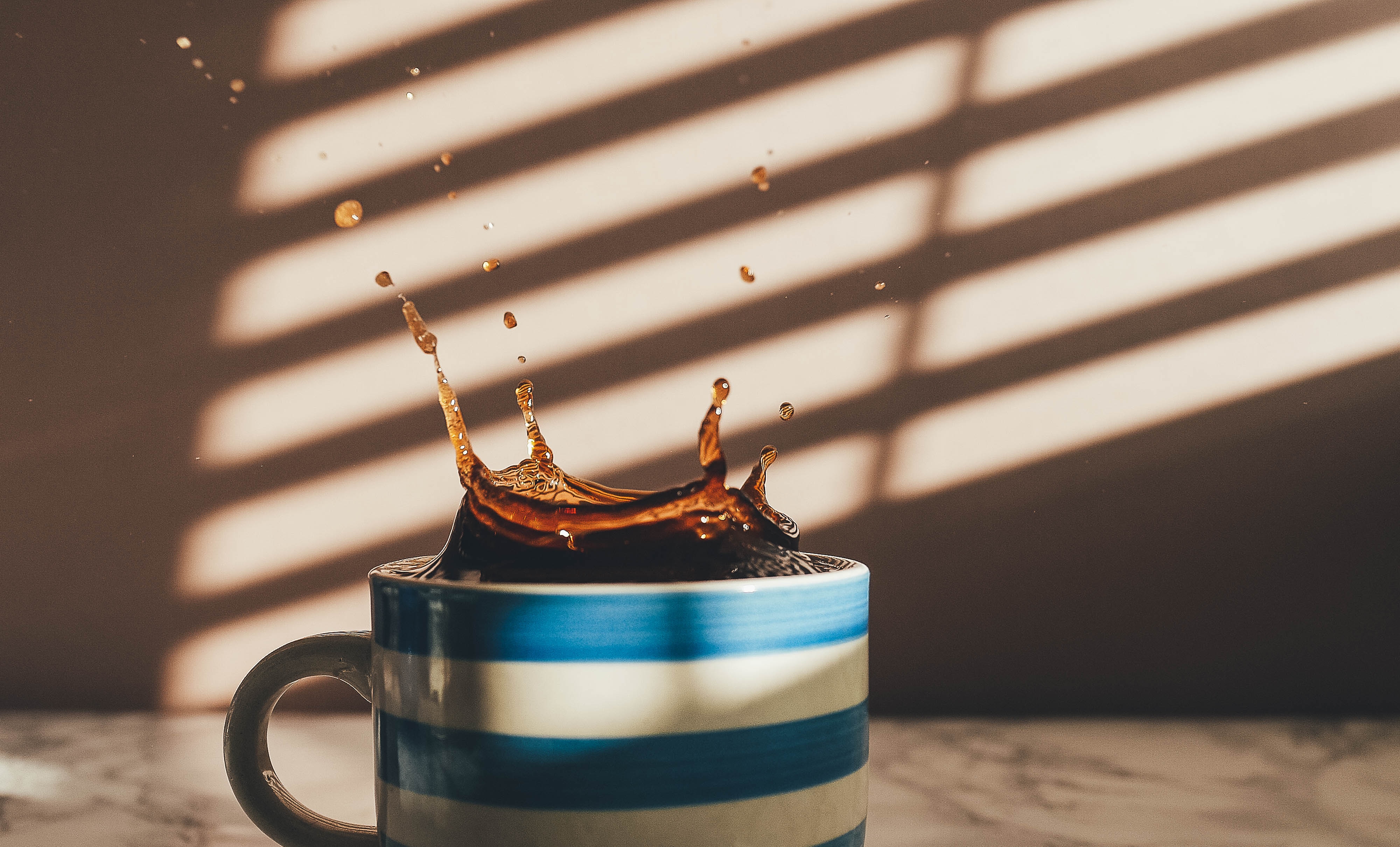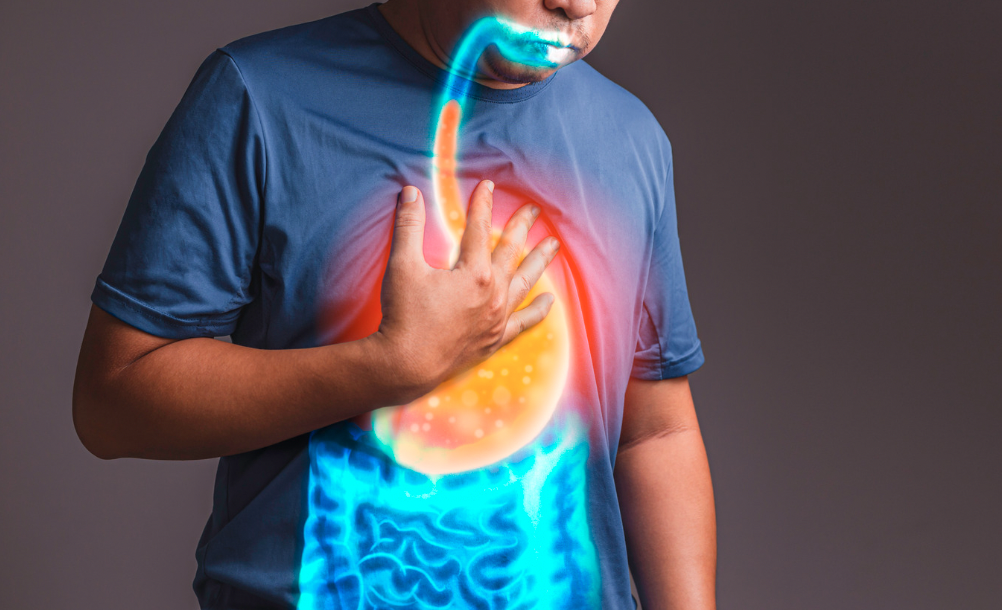胸口總是有灼燒感?
小心,胃食道逆流可能找上你了!

胃食道逆流的發生原因
在忙碌的現代生活中,精神緊繃早已成了我們的日常。每天早上一起床,就要趕著上班,有些人可能連早餐都來不及吃,匆忙地喝上一杯黑咖啡,就開始了忙碌的一天。然而,這樣的生活習慣,加上工作壓力和情緒波動,都是導致胃食道逆流的危險因素 [1]。
胃食道逆流是一種常見的腸道問題,肥胖、營養失衡、不良的飲食習慣是胃食道逆流的常見風險,根據統計,台灣人的胃食道逆流盛行率高居亞洲之冠 (20-25%),平均每四人中就有一人飽受胃食道逆流所苦 [2]。胃食道逆流的發生原因主要可歸納為三大類 [3,4]:

胃食道逆流歸因一:賁門鬆弛
「賁門」是胃和食道之間的一扇單向自動門,正常情況下,賁門會在食物通過後自動關閉,防止胃部的內容物逆流回食道。然而,如果賁門出現異常、無法完全閉合時,胃部的內容物就有可能逆流回食道,引發胃食道逆流。肥胖、飲食習慣不佳等都是造成賁門關不緊的可能原因。
胃食道逆流歸因二:胃排空延遲
「胃下垂」又稱延遲性胃排空,當胃部肌肉功能異常或消化不良,就會發生胃排空延遲,意味著食物最終無法順利進入小腸,而堆積在胃部,引發腸胃不適或胃食道逆流。
胃食道逆流歸因三:腹部壓力過高
肥胖是造成腹部壓力過高的常見原因之一,過多的腹部脂肪會增加胃部所受到的壓力,甚至會導致食道裂孔疝氣,進一步惡化胃食道逆流的症狀。
➜ 夏季的隱形殺手:心血管疾病|這三大高風險族群須注意
保胃大作戰第一招:補充關鍵營養素
1. 補充綜合酵素,維持消化道機能 [7]:
隨著年齡增長,腸道內消化酵素的分泌也在逐漸減少,恐影響食物的消化和營養的吸收,綜合酵素能夠協助分解食物並加強營養的吸收,進而促進胃排空,降低胃食道逆流的發生風險。
2. 補充益生菌與膳食纖維,抑制幽門桿菌 [8]:
幽門桿菌是一種常見的胃部細菌,幽門螺旋桿菌的感染可能會引發與胃酸不正常分泌與胃食道逆流 [9]。攝取益生菌可以增加胃腸中的益菌、抑制有害細菌的生長、也能夠有效促進胃排空 [10],降低胃食道逆流的發生風險 。此外,也要加強膳食纖維的攝取,膳食纖維不僅可以做為腸道好菌的營養來源,還能夠降低胃食道逆流的發生風險 [11]。
3. 補充薑黃素,修復食道黏膜 [12]:
胃食道逆流會對食道黏膜造成傷害,甚至可能進一步惡化為食道炎、食道潰瘍等嚴重疾病。薑黃具有出色的抗發炎和抗氧化能力,動物實驗證實,薑黃能夠有效預防胃食道逆流所造成的食道黏膜損傷。此外,建議在飯後食用薑黃,因為膳食脂肪可以有效提高薑黃素的吸收率 [13]。
➜ 瞭解更多營養師精準保健規劃,教你如何精準吃保健品
保胃大作戰第二招:落實體重管理

肥胖是胃食道逆流的重要風險因素,肥胖不僅會影響食道的蠕動能力,過多的腹部脂肪還會讓胃部與食道承受更高的壓力,肥胖者發生胃食道逆流的機會比一般人高出三倍 [14]。根據一項29,610人的世代研究,只要減重超過0.5單位BMI,成功改善胃食道逆流的機會就會提高1.2~2.4倍 [15]。
保胃大作戰第三招: 減少攝取咖啡因與刺激性食物
在食物選擇上,某些食物可能會降低賁門收縮力或引發功能性消化不良,從而導致胃食道逆流的發生 [16]。茶、咖啡、以及蘇打飲料的攝取會暫時降低賁門的收縮力,根據一項涵蓋了7,900多名受試者的研究指出,每天飲用一杯茶、咖啡或蘇打飲料的人,胃食道逆流的風險會顯著增加 [17]。

保胃大作戰第四招:調整生活型態
胃食道逆流的症狀若發生在睡前,火燒心與失眠的雙重打擊可以說是惡夢般的存在。研究顯示,若是晚餐與睡覺時間的間隔在3小時以內、或是在晚餐之後吃零食,都會加重夜間的胃食道逆流症狀 [18],因此建議晚餐的進食時間要與就寢時間間隔3小時以上,宵夜更是要盡量避免。此外,提高床頭高度、使用楔形枕頭或改為左側睡姿,都能有效降低睡前胃食道逆流的發生率,同時減少胃食道逆流的持續時間 [19]。
➜ 濕疹又紅又癢?營養師教你多吃這6種食物降低復發率
想改善胃食道逆流,你的保健品真的吃對了嗎?胃食道逆流可能是由多種健康問題共同導致的。
如果你正在尋找改善胃食道逆流的方法,我們已為你準備了一項絕佳的解決方案:「營養師精準保健規劃」。Cofit 的專業營養師將全方位了解你的身體狀況和需求,為你量身訂做專屬於你的保健品規劃,無論是飲食調整、腸道保健或健康相關的疑難雜症,我們都會給予你最專業的支持與建議,助你重拾健康。
撰文者:馬鳳吟 營養師
讓營養師為你規劃專屬保健營養包,教你輕鬆吃出健康
以往買保健品只注重別人的推薦、評價,卻忽略了身體真正的需求,但更重要的是攝取對的營養素!Cofit 營養師可以幫你做個人化的專業分析,再依照你的需求量身規劃最適合的保健方案,真正達到有感保養!歡迎預約「營養師精準保健規劃」
*另外,我們也有提供「全線上視訊服務」,在家就能和營養師見面,好安心、好方便!
Reference:
- Jansson, C., Nordenstedt, H., Wallander, M. A., Johansson, S., Johnsen, R., Hveem, K., & Lagergren, J. (2007). Severe gastro-oesophageal reflux symptoms in relation to anxiety, depression and coping in a population-based study. Alimentary pharmacology & therapeutics, 26(5), 683–691. https://doi.org/10.1111/j.1365-2036.2007.03411.x
- Nirwan, J. S., Hasan, S. S., Babar, Z. U., Conway, B. R., & Ghori, M. U. (2020). Global Prevalence and Risk Factors of Gastro-oesophageal Reflux Disease (GORD): Systematic Review with Meta-analysis. Scientific reports, 10(1), 5814. https://doi.org/10.1038/s41598-020-62795-1
- Savarino, V., Marabotto, E., Zentilin, P., Furnari, M., Bodini, G., De Maria, C., Tolone, S., De Bortoli, N., Frazzoni, M., & Savarino, E. (2020). Pathophysiology, diagnosis, and pharmacological treatment of gastro-esophageal reflux disease. Expert review of clinical pharmacology, 13(4), 437–449. https://doi.org/10.1080/17512433.2020.1752664
- Schubert M. L. (2017). Physiologic, pathophysiologic, and pharmacologic regulation of gastric acid secretion. Current opinion in gastroenterology, 33(6), 430–438. https://doi.org/10.1097/MOG.0000000000000392
- Mayo clinic. (2023, January 4). Gastroesophageal Reflux Disease (GERD). https://www.mayoclinic.org/diseases-conditions/gerd/symptoms-causes/syc-20361940
- National Institute of Diabetes and Digestive and Kidney Diseases (NIDDK). (2020, July). Symptoms & Causes of GER & GERD. U.S. Department of Health and Human Services. https://www.niddk.nih.gov/health-information/digestive-diseases/acid-reflux-ger-gerd-adults/symptoms-causes
- Majeed, M., Majeed, S., Nagabhushanam, K., Arumugam, S., Pande, A., Paschapur, M., & Ali, F. (2018). Evaluation of the Safety and Efficacy of a Multienzyme Complex in Patients with Functional Dyspepsia: A Randomized, Double-Blind, Placebo-Controlled Study. Journal of medicinal food, 21(11), 1120–1128. https://doi.org/10.1089/jmf.2017.4172
- Cheng, J., & Ouwehand, A. C. (2020). Gastroesophageal Reflux Disease and Probiotics: A Systematic Review. Nutrients, 12(1), 132. https://doi.org/10.3390/nu12010132
- Yucel O. (2019). Interactions between Helicobacter pylori and gastroesophageal reflux disease. Esophagus : official journal of the Japan Esophageal Society, 16(1), 52–62. https://doi.org/10.1007/s10388-018-0637-5
- Mandarino, F. V., Sinagra, E., Barchi, A., Verga, M. C., Brinch, D., Raimondo, D., & Danese, S. (2023). Gastroparesis: The Complex Interplay with Microbiota and the Role of Exogenous Infections in the Pathogenesis of the Disease. Microorganisms, 11(5), 1122. https://doi.org/10.3390/microorganisms11051122
- Morozov, S., Isakov, V., & Konovalova, M. (2018). Fiber-enriched diet helps to control symptoms and improves esophageal motility in patients with non-erosive gastroesophageal reflux disease. World journal of gastroenterology, 24(21), 2291–2299. https://doi.org/10.3748/wjg.v24.i21.2291
- Kwiecien, S., Magierowski, M., Majka, J., Ptak-Belowska, A., Wojcik, D., Sliwowski, Z., Magierowska, K., & Brzozowski, T. (2019). Curcumin: A Potent Protectant against Esophageal and Gastric Disorders. International journal of molecular sciences, 20(6), 1477. https://doi.org/10.3390/ijms20061477
- Dei Cas, M., & Ghidoni, R. (2019). Dietary Curcumin: Correlation between Bioavailability and Health Potential. Nutrients, 11(9), 2147. https://doi.org/10.3390/nu11092147
- Nilsson M, Johnsen R, Ye W, Hveem K, Lagergren J. Obesity and Estrogen as Risk Factors for Gastroesophageal Reflux Symptoms. JAMA. 2003;290(1):66–72. doi:10.1001/jama.290.1.66
- Ness-Jensen, E., Lindam, A., Lagergren, J., & Hveem, K. (2013). Weight loss and reduction in gastroesophageal reflux. A prospective population-based cohort study: the HUNT study. The American journal of gastroenterology, 108(3), 376–382. https://doi.org/10.1038/ajg.2012.466
- Sethi, S., & Richter, J. E. (2017). Diet and gastroesophageal reflux disease: role in pathogenesis and management. Current opinion in gastroenterology, 33(2), 107–111. https://doi.org/10.1097/MOG.0000000000000337
- Mehta, R. S., Song, M., Staller, K., & Chan, A. T. (2020). Association Between Beverage Intake and Incidence of Gastroesophageal Reflux Symptoms. Clinical gastroenterology and hepatology : the official clinical practice journal of the American Gastroenterological Association, 18(10), 2226–2233.e4. https://doi.org/10.1016/j.cgh.2019.11.040
- Vemulapalli, R. (2008), Diet and Lifestyle Modifications in the Management of Gastroesophageal Reflux Disease. Nutr Clin Pract, 23: 293-298. https://doi.org/10.1177/0884533608318106
- Kaltenbach, T., Crockett, S., & Gerson, L. B. (2006). Are lifestyle measures effective in patients with gastroesophageal reflux disease? An evidence-based approach. Archives of internal medicine, 166(9), 965–971. https://doi.org/10.1001/archinte.166.9.965
- Ness-Jensen, E., & Lagergren, J. (2017). Tobacco smoking, alcohol consumption and gastro-oesophageal reflux disease. Best practice & research. Clinical gastroenterology, 31(5), 501–508. https://doi.org/10.1016/j.bpg.2017.09.004
- Ness-Jensen, E., Hveem, K., El-Serag, H., & Lagergren, J. (2016). Lifestyle Intervention in Gastroesophageal Reflux Disease. Clinical gastroenterology and hepatology : the official clinical practice journal of the American Gastroenterological Association, 14(2), 175–82.e823. https://doi.org/10.1016/j.cgh.2015.04.176





